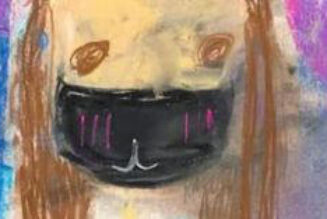The following two pieces on Grief and Healing were written by Janie Bloomer. She had this to say as an introduction:
I lost my partner of 36 years. She died 3-1-2020. These are a sample of some of the things I have written on grief. I use writing as a therapeutic tool to deal with this heartbreaking loss. I am a retired teacher and taught English and Reading. I also was a band and choral director at different times in my career.
Janie Bloomer
Hello,
I am your new companion, Grief. We have never really met before, so you aren’t familiar with me. Oh, sure, you have experienced the camaraderie of my cohorts, Sadness and Sorrow, but you don’t yet know what I am capable of, how all-consuming I can be. At first, you won’t know whether to ignore me, embrace me, despise me, fear me, or try to understand me.
But I have many faces. I will teach you the meaning of loss and loneliness, of guilt and regret. Since you are new at this, you will sometimes misinterpret my purpose. When I drag you down the proverbial rabbit hole to the depths of despair, you will think that there is no way out except to take the most drastic measures. Sometimes, you would do anything to relieve the pain your heart is experiencing, and you consider alternatives that are irreversible.
You will release cascades of tears until you believe there can’t possibly be any reserves left. Sobs will escape your throat without your approval. These responses are totally foreign to you, and you won’t know how to handle them. There will be gut punches when you least expect them. Breathing techniques will sometimes help, but not always. There will be times that you will have no choice but to let me be, to cry until there are no more tears, to sob until your throat and head are pounding, and to allow the painful memories to surface.
In time, you will learn to live beside me, to carry me with you. You can’t fix me or get rid of me, because I refuse to be taken lightly. I am an unwelcome visitor, one that only a few people will even be willing to hear you talk about because it makes them so uncomfortable. I am like a burr under their saddle, so to speak. The ones who do “get it” will understand and acknowledge me when I am at my peak, and they will bear witness to the pain I am causing you. Keep them close to you.
I am the proof that you did, indeed, love your person. I am the longing for the love you once shared, pining for her physical presence. Your heart will sometimes feel as though it will actually break, and you may think you will never be able to function or find significance in living again. I will always be with you because she is so deeply ingrained in your being. You will never “get over” me, but in time, it will become easier to live “with” me. The memories of your life together will become more comforting than painful. The times you are distraught will become fewer, and you will eventually find purpose again in life. And so, I promise to be as gentle with you as I possibly can.
Sincerely,
Your Grief
Written Word Submission by Janie Bloomer
Angela L. Chostner – Art That Speaks To The Sacred Essence in Us All
AngelaLChostnerArt.com
HEALING
Is it better to rip off a bandage in one fast jerk, or is it more advisable to ease it off gradually? Such a dilemma to contemplate!
I usually favor getting the pain over with quickly, so I take a deep breath, close my eyes, and rip it off as fast as I can. There! Done! But when I open my eyes, I see that the originally-injured area is still there, not totally healed as I hoped it would be. The part that had begun to mend and was just starting to form a protective layer was reopened by my impatience and impulsivity. In fact, I caused another area unrelated to the first sore spot to bleed. Now, I have two wounds to tend to instead of just the one. Rats!
I guess I should have been gentler with my hurt. Had I taken my time to allow for more healing first, I wouldn’t have caused myself additional pain. The raw spot needs to be carefully nurtured so that it heals properly without trying to rush the process. Changing the bandage regularly is advisable to give the sore an environment conducive to healing. But when replacing it, one should always take special care with the tender, sensitive area beneath. Removing the bandage too soon or too fast will be detrimental to its healing. You can’t hurry it along, as I can attest.
Grief is very much like this. We are tempted to try to get done with it all at once. But in our haste, we may rip open many old wounds that have accumulated over the years that now need tender loving care. As Megan Devine says, ‘Grief is not something to get over; it is a process to be experienced.’ There is no finish line to cross nor medal to be awarded for being the fastest griever.
Being patient during the grieving procedure allows for gradual healing. Knowing how to deal with our grief has to be learned, sometimes requiring help from an expert. There are innumerable changes to adapt to, not to mention the loneliness and isolation that set in. There needs to be regular change and variety in the “bandage” that is providing the balm for our wound. We must take our time and slow down.
So, my best advice is to be kind, and patient, and gentle with yourself because grief is a lifelong undertaking. Your healing will take as long as it takes!
Janie Bloomer, A Heartlinks Griever
Heartlinks Grief Center – MyHeartLinks.com
Susan Norsigian is a Licensed Clinical Professional Counselor / Art Therapist in private practice in the StL Metro area. NorsigianCounseling.com










